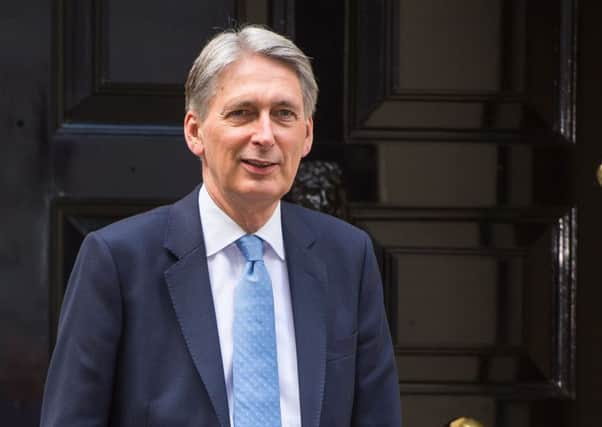Ian Swanson: While Team GB's winning gold, economy UK is last


But however inspiring the athletes’ achievements against international competition, attention will soon refocus on the bigger question of how the UK will fare following the decision to quit the world’s largest trading block.
Chancellor Philip Hammond has announced a guarantee of continued funding – worth up to £6 billion a year – until 2020 for some projects currently financed by the European Union. But Labour says the promise is only a short-term fix and will not make up for the fact the UK economy is likely to shrink dramatically in the meantime, leading to lost revenues which could have gone on public spending and investment.
Advertisement
Hide AdAdvertisement
Hide AdAnd the SNP warns that the promised Treasury funding will leave Scotland hundreds of millions of pounds short of what we would receive as members of the EU, putting jobs and investment at risk.
Critics also point out that the UK is unlikely to leave the EU before 2019, so Mr Hammond’s guarantee is effectively for only one year.
And even if the Chancellor is ready to find substitute cash for universities to continue research projects, he can do nothing to compensate for the likely loss of collaboration with academics in other EU countries no longer keen to sign up to joint projects with UK colleagues.
When Bank of England governor Mark Carney announced new measures earlier this month, including cut ting interest rates to a historic low, in a bid to avoid a post-Brexit recession, he made clear that the Bank had only limited power and the government would also have to act.
Advertisement
Hide AdAdvertisement
Hide AdA cut in VAT has been mooted as a way of encouraging consumer spending and boosting the economy. Labour’s Alistair Darling made a temporary 13-month reduction in VAT after the 2008 banking crisis.
But the most obvious move would be to boost infrastructure investment. The record low interest rates mean it has never been cheaper for the Government to borrow cash to spend on things like housing, road and rail links and broadband connectivity, which would create jobs and deliver much-needed homes, an improved transport network and consistent, reliable wi-fi.
The Scottish Government has already allocated £100 million to speed up capital projects in the wake of the Brexit vote.
And when finance ministers from the devolved administrations met last month, they sent a joint letter to the Chancellor emphasising the importance of investment in vital infrastructure to boost growth and restore confidence.
Advertisement
Hide AdAdvertisement
Hide AdScottish Labour has also published its own Brexit action plan, which includes bringing forward infrastructure spending, focused particularly on housebuilding with a target of 60,000 affordable homes over the next five years. The party also wants a Brexit Support Fund to help at-risk sectors.
It is still too early to know exactly what effect the Brexit vote will have or what future deals can be negotiated. David Cameron shockingly failed to make any contingency plans. And leading Brexiteers Liam Fox and Boris Johnson, now in key government posts, are already falling out.
No-one says it’s easy, but the UK government doesn’t get any medals for its performance so far.